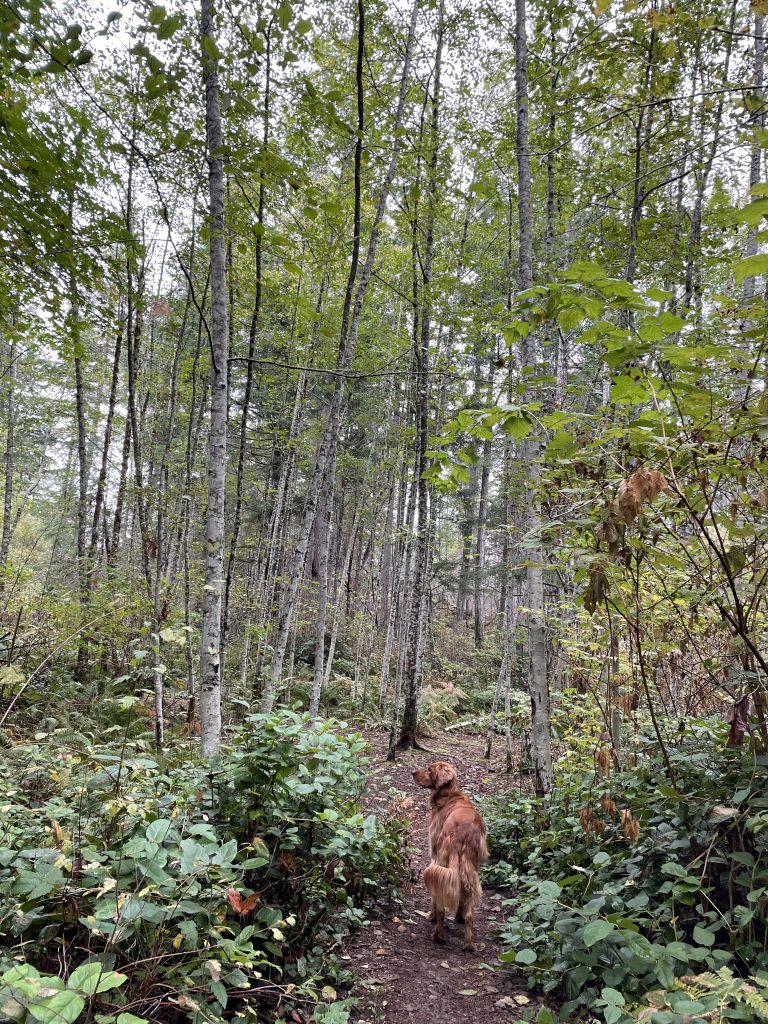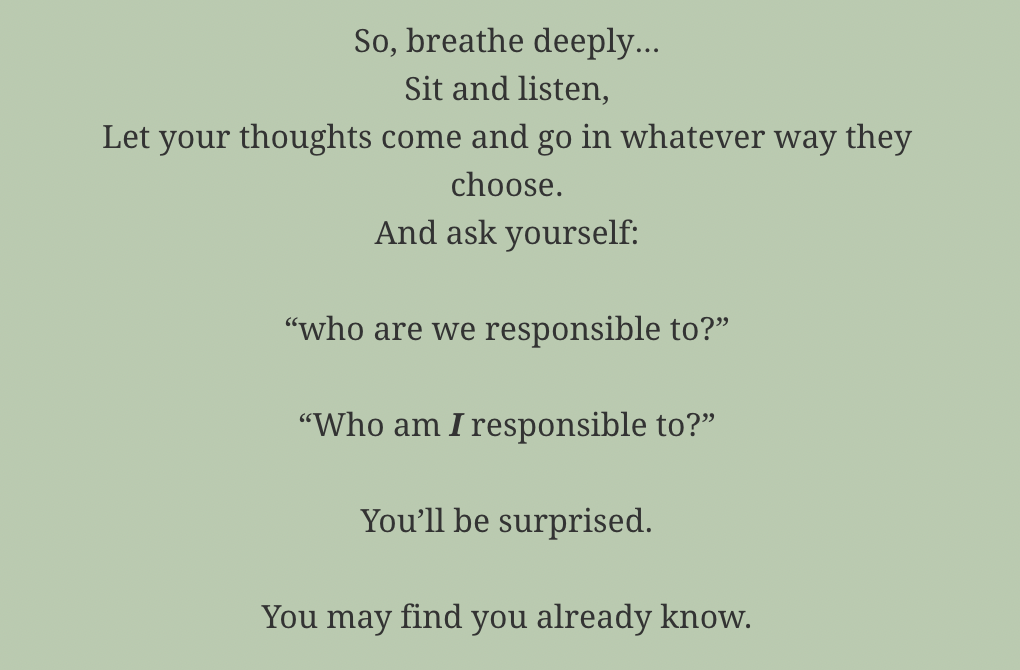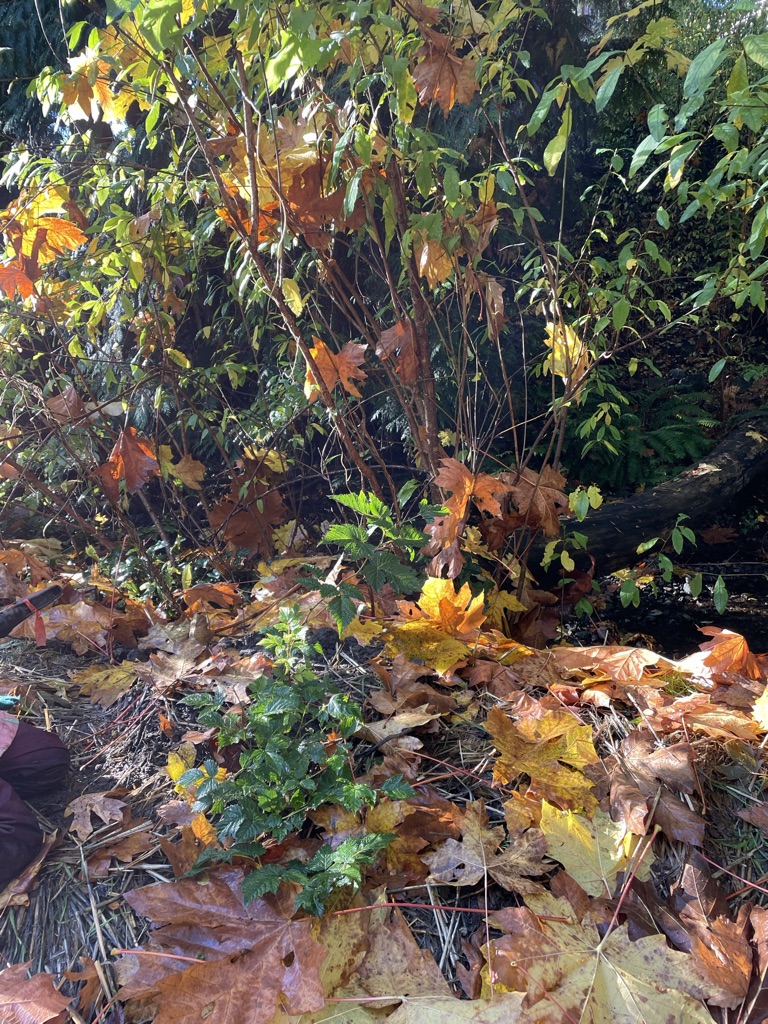Dear Ash,
Today I found myself in a grove, to be very specific, in an Alder Grove; I thought about how these trees are so quick to grow and that they fall quickly—constantly rising, falling and re-growing again. This speaks to the images you pull from the pedagogical narration by Shannon McDaniel called “The Educator I Once Was” (Government of British Columbia, 2019, p. 91). With this, my heart is open to new ideas, and I am, hopefully, forever willing to grow and be teachable.

Ash’s encouragement that I may already know who I am responsible for brings joy to my heart. Her writing sings a song of welcome and invitation. I feel called to respond…

So, after her invitation to breathe, I can articulate who I feel responsible to: I feel responsible for all things human and non-human. I am also responsible for living well so others may live well too.
How might I respond to this call to be responsible? Here is the how and why of it:
- To uphold, live and breathe our Framework’s vision: “Respectfully living and learning together” (Government of British Columbia, 2019, p. 42).
- To love and be loved (human and non human).
- To feel welcome and welcome others, much like Ash has done above.
- To challenge and critically reflect on the thoughts and stories that have led me to where I am today. “To be and to become an experienced teacher is not merely the accumulation of strategies and knowledge, but rather it calls for one to confront one’s previous understanding” (Pelech & Skuce, 2020).
I will share that I appreciate Ash’s way of bringing her learning visible; It opens up an opportunity for me to do the same. I will close with this question: is it possible that we are also responsible to our colleagues?

“Every breath that you take is a breath that was made for you by plants”(Kimmerer, 2019).
In Gratitude and Kindness,
Chelsea
References:
Bioneers [Bioneers]. (2019, June 11). The honourable harvest – Robin Kimmerer [Video]. YouTube. https://www.youtube.com/watch?v=cEm7gbIax0o
Government of British Columbia. (2019). British Columbia early learning framework (2nd ed.). Victoria: Ministry of Education, Ministry of Health, Ministry of Children and Family Development, & British Columbia Early Learning Advisory Group. https://www2.gov.bc.ca
Pelech, S., Skuce, T. (2020). A pedagogical venturing into the three sisters’ garden: Lessons of attunement and reciprocity in education. Journal of Applied Hermeneutics, 2020: 2020. https://journalhosting.ucalgary.ca

Great Collaborative discussions the other evening (wed). It was nice to see students and fellow colleagues and instructors. It is interesting how different our paths may be they really are similar and we face similar struggles. I enjoyed listening to the above Blog posts from the authors that was a very unique experience, a first for me. It felt special like meeting an author in person.
Self care self care self care, being mindful and being more present in each moment is what I took away from this. Thank you
Jennifer,
It seems we share a last name, a coincidence? I think not!
I appreciate your heart and your taking the time to comment on our work here. It was an honour to share space with all who attended the Collaborative Dialogue series event in early October. They are also thinking about a way of reflecting on responsibility out there in the outside world! I am grateful for a moment to feel more intimately with “being mindful and being more present in each moment”. Your comments remind me of the importance of self-reflection and thinking critically about who I am and how I show up in Early Childhood Educator. I wonder if self-awareness and reflection are part of being mindful and present? Is it to be entirely intentional with our work with children so that they know we are there paying attention and present? It’s always so curious thinking about these big ideas. Thank you for the reflection.
“Set aside predictable, regular times to give full attention without being distracted by other concerns while also creating a safe, familiar place for [child] to spend time playing alone.”
-Magda Gerber
With gratitude,
Chelsea